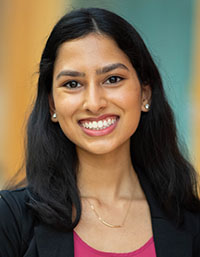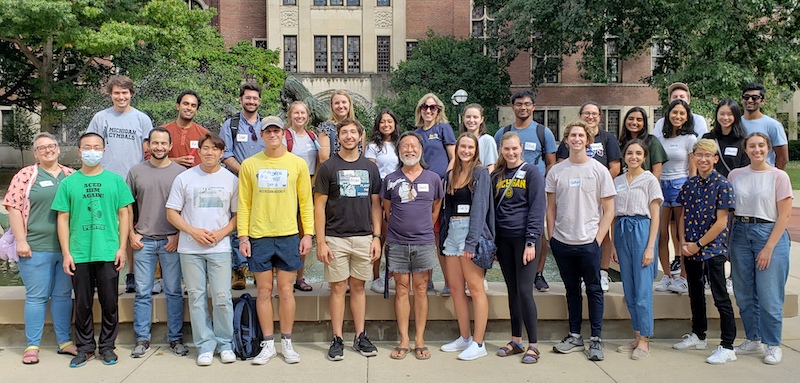Hi! I’m Prachi Fozdar, a Business and Engineering undergraduate working as a communications assistant at CHEPS. I was recently able to interview Aparna Reddy, an undergraduate sophomore currently on the pre-med track in LSA, to find out more about her work at CHEPS.
 How’d you get involved in CHEPS?
How’d you get involved in CHEPS?
“Freshman year I joined another student organization, Blueprints for Pangea, with Kishor and he told me during one of the meetings about how he’s involved in CHEPS. I got really interested, so I researched CHEPS a bit more and then decided to apply.”
What made you want to join CHEPS?
“I’m really interested in the systemic components of healthcare because a lot of the research I did in high school was more computational-based. I wanted to explore that a bit more with the public health and systemic components of it, so that’s what got me interested in CHEPS.”
What has been your favorite project you’ve worked on?
“My favorite CHEPS project is the VA Lung Precision Oncology Program (LPOP) project which aims to implement a lung cancer screening program at the VA in Ann Arbor. I love the public health component of setting up a system for early detection and prevention of lung cancer, and also the collaborative aspect as I get to work with CHEPsters with a variety of backgrounds as well as our clinical collaborators. I am really looking forward to continuing to work on this project this semester!”
What was your role in this project?
“For the lung cancer screening project, I’m the student coordinator, so I deal with a lot of the logistical aspects like setting up meetings and agendas and other typical daily emails and updates. As far as the project itself, the VA is currently implementing the screening process, so we’ve been building a tool that can help measure the time and other resources needed based on factors like the number of patients in the system.”
What’s the biggest impact you’ve made through your time at CHEPS so far?
“Over the summer especially we did a lot of background research so that we could learn more about patient’s barriers in getting cancer screening, what screening entails, and how screening can be implemented into clinical patient visits. Thinking about all of that gives us an opportunity as CHEPS to offer suggestions to make the process run more smoothly. That’s something that we hope to be able to implement and make an impact through by next semester.”
Has CHEPS helped you with school or vice versa?
“Being a part of CHEPS as a pre-med has taught me the importance of interdisciplinary work to create effective systems to promote health. I have also gained new perspectives and a more holistic understanding of health care beyond what I learn in the classes I take as a pre-med. I hope to continue to utilize what I learn from my time at CHEPS to continue to problem-solve and improve health care as a physician.”
What is one of your favorite things about CHEPS?
“The interdisciplinary nature of CHEPS. There are students from Ph.D. to undergrads so it’s nice to have everyone’s perspectives. Another important aspect is learning through workshops. I’m not in engineering, so I’ve been able to learn more about machine learning and how it’s used in healthcare, something I otherwise would’ve never learned.”
What’s your favorite memory at CHEPS so far?
“I would have to say the first social – the ice cream social – that we had at the beginning of the fall semester. I spent the whole summer working online with everyone at CHEPS so I never got to see them in person. The ice cream social was really fun since I got to see everyone in person for the first time and get to know them better.”

What are some important takeaways from CHEPS?
“Like I already touched on, having people in different backgrounds and knowing more people of various backgrounds. It is really cool to be part of a community that brings people together.”
